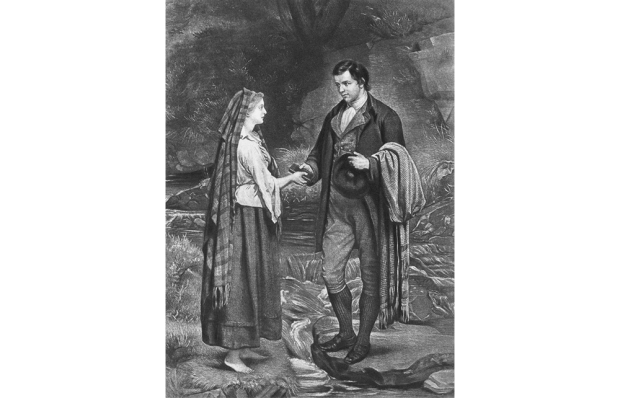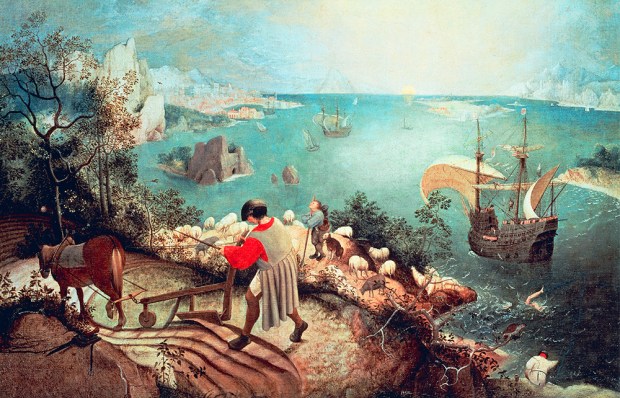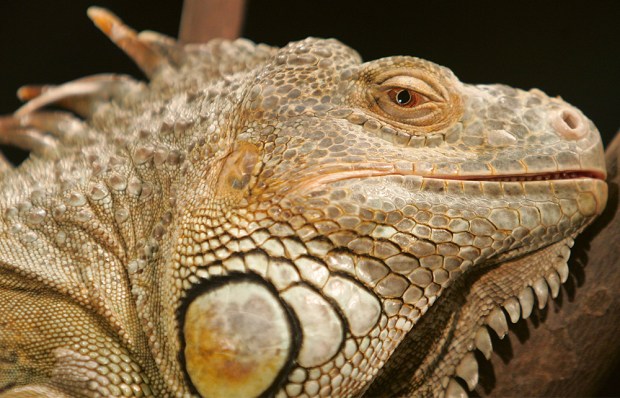In Competition No. 2970 you were invited to supply an extract from an Ig Nobel Prize-winner’s speech that describes the ‘achievement’ (invented by you) being honoured.
The Igs are spoof awards handed out annually at Harvard for scientific achievements that manage to be both hilarious and thought-provoking. In 2014’s Neuroscience category, for example, the award was scooped by Jiangang Liu et al. for their contribution to our understanding of what happens in the brains of people who see the face of Jesus in a piece of toast.
And just last month, Egyptian urologist Ahmed Shafik was honoured in this year’s Reproduction category for his work testing the effects of wearing various-fabrics on the sex life of rats. (The rodents-wearing the polyester slacks were found to have ‘significantly lower’ rates of-sexual-activity.) Moving across to the field of psychology, Evelyne Debey and colleagues were recognised for research that involved asking a thousand liars how often they lie and deciding whether to believe their answers. And in the area of-economics, Mark Avis et al. nabbed the laurels for their invaluable research into the perceived-personalities of rocks from a sales and marketing perspective.
This proved to be a tricky assignment and produced a smallish entry. Two-evidently like-minded competitors, Jamie Burnham and Alex Gleick, made-references in their submissions to both ursine faeces and the Pope. Warm commendations go to Peter Ridley, Michael Copeman and Robert A. McWhirter, who were unlucky to miss out on a spot on the winners’ podium. The prizewinners, printed below, are rewarded with £35 each.
The prevalence of dismissive articles in non-scholarly media in no way diminishes my appreciation of this Ig Nobel Award for the rôle of crossword techniques in marriage guidance. Recruiting study groups, matched both for crossword-solving level and potential marital stability/instability, initially raised a plethora of questions: how to cope with ‘mixed-ability’ marriages and dominance; methodology for compensating for the inherent smugness of the ‘cryptic’ solvers over the ‘quick’; whether the use of online anagram solvers was an avoidance strategy for conflict resolution; should crossword ‘addiction’ in one partner be addressed in co-counselling or via a help group; the definition of ‘general knowledge’ and its relevance. Control groups of non-crossword users required comparable levels of marital matching. Pen v. pencil was another tricky area. That we measured a divorce rate only slightly higher than the norm is a tribute to the staying power of everyone involved.
D.A. Prince
I proudly accept the Literature Ig Nobel for Determining How Many Characters A Book Title Should Have To Maximise Success. The statistical answer — approximately 12.936 letters — for the first time helps explain how The Da Vinci Code scooped the pool. Not literary genius after all, but a code; perhaps not so surprising. 12.936 is also the average of the 47 Booker Prize winners so far, with three words, usually including a definite article, and 3 or 4 ‘e’s involved. Now we can see how Aravind Adiga triumphed in 2008: The White Tiger was first to near the perfect criteria since Keri Hulme’s The Bone People in 1985. It’s literal proof that publishers don’t count (so many proxime accessits! The Old Devils! Sacred Hunger! The Sea, The Sea, such a brave step forward from The Sea!). I’ll lay a bet on this year’s inadequate crop: only His Bloody Project comes close.
Bill Greenwell
My work on the efficacy of prayer has brought me here to discuss the efficacy of my work. Prayer is a mechanism much maligned in scientific establishments, but science is much maligned in prayer establishments. I used scientific instruments to measure prayer and I prayed that my instruments were not faulty. You have all read my paper on how I did my research else I would not be in your congregation today. I submit that my methodology is not under aloof scrutiny, nor indeed are the results of my labours, but the supposition that wishing can bring fulfilment is the subject of academic scorn. Amen to that, then, but before moving into justification of my efforts let me note that I prayed as a boy for an opportunity to stand before the world’s most eminent scientists. Do you know, gentlemen? I believe my prayer has been answered.
Frank McDonald
Addicted grown swiftly have I which to, speaking of way this of me curing in assist might researchers future that hope only I. ‘Marriage of Institution The on Speech Backwards of Effects Term-Long The,’ proven have I, me employed formerly that faculty the at webpage the on discuss and read can you that and, today you to presented have I work the with. Latin pig of creators the, ancestors distant my by begun first journey the completed have I that believe to like I. Today all you before, stage this on me land would paper resulting the that idea no had I, speech backwards of limits true the discovering on mind my set I when. Research my of course the in, pathological and psychological both, analysis and commentary invaluable, thorough her of all for wife-ex now sadly my thanking by — end to, technically, well — begin to like would I.
Christopher Walker
No 2973: missing person report
Stevie Smith wrote a poem entitled ‘Thoughts about the Person from Porlock’. Assuming there really was a person from Porlock, who might it have been? You are invited to give your own thoughts — in prose of up to 150 words or verse of up to 16 lines. Please email entries, wherever-possible, to lucy@spectator.co.uk by midday on 2 November.
Got something to add? Join the discussion and comment below.
Get 10 issues for just $10
Subscribe to The Spectator Australia today for the next 10 magazine issues, plus full online access, for just $10.
You might disagree with half of it, but you’ll enjoy reading all of it. Try your first month for free, then just $2 a week for the remainder of your first year.













Comments
Don't miss out
Join the conversation with other Spectator Australia readers. Subscribe to leave a comment.
SUBSCRIBEAlready a subscriber? Log in